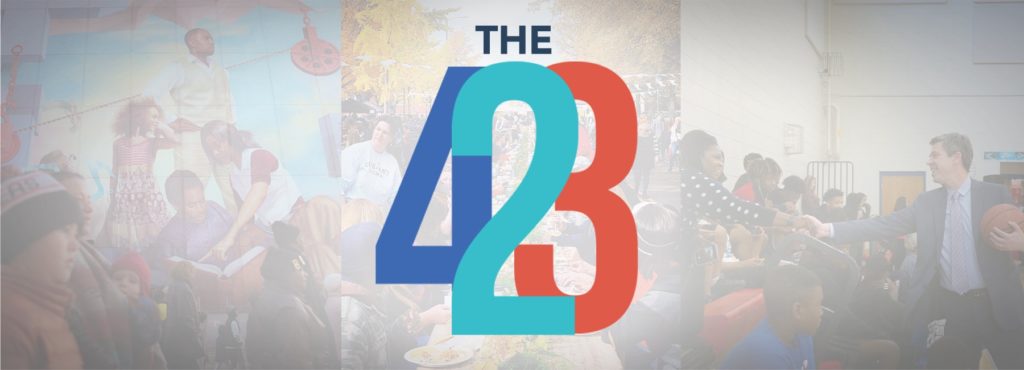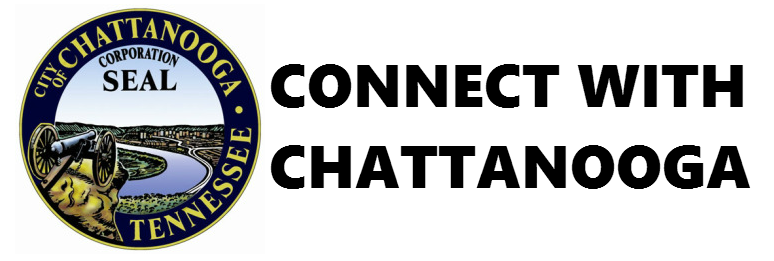Council Against Hate Meets: “You Have the Power”

“Hate doesn’t just happen. It isn’t passive. And we don’t have to be passive toward it. We each have a responsibility to take action.”
Chattanooga Mayor Andy Berke knows what hate and extremism look like. On July 16, 2015, five service members were killed in a terror attack in Chattanooga, a day that shook the entire community.
On the eve of the fourth anniversary of the attack, Mayor Berke was joined by Allison Padilla-Goodman of the Anti-Defamation League to discuss the State of Hate in the South at the second Mayor’s Council Against Hatemeeting.
“The ADL has been busy, busier than I think we ever have been — and my busyness is generally not a great sign for the world. Still, a portrait of the South as overrun by hate is not an accurate portrait,” Padilla-Goodman said. “While yes we sit in a place absorbed in an ugly history — and one that is not very long ago and continuously bubbles to the top in an unsettled stew — and while yes, we have many, huge hurdles we also sit in a place where people are actively and eagerly fighting against this narrative because they are so in-tune with it, and defining themselves in a vision of America that they want to be — like this Council Against Hate — and that is a trend that also overwhelms and inspires me.”
Padilla-Goodman is the Southeast Regional Director of ADL and her team has been working tirelessly to track and combat incidents of hate, racism and anti-Semitism across the South.
The ADL’s statics show we still have work to do.
- 2017 saw the largest increase ever in anti-Semitic incidents, which include acts of vandalism, harassment and assaults.
- In 2018 the ADL saw an 18 percent increase in race-based crimes, with crimes against African Americans accounting for 28 percent of all reported hate crimes.
- Also in 2018, 19 percent of all white supremacists events were hosted in Tennessee.
During his 2018 State of the City speech, Mayor Berke formed the Council Against Hate, which was created to understand the factors leading to the spread of violent extremism and intolerance in Chattanooga and to advise the public and private sectors on policies and strategies that will create a more civil, safe, and welcoming community for all people.
The Council’s Steering Committee released a report that outlines their vision and goals to make Chattanooga a community for all, which includes seven subcommittees dedicated engaging different demographics in conversations and taking action to end hate in their communities.
Experts from Ms. Padilla-Goodman’s presentation are below. Her speech and the rest of the meeting, may be viewed in full at the Council Against Hate’s Facebook page.

“Many would say that the work of fighting hate in the Deep South implies that, well, that I have a lot of job security. And, there’s a lot of truth to that. We have been busy, busier than I think we ever have been — and my busyness is generally not a great sign for the world.
Still, a portrait of the South as overrun by hate is not an accurate portrait. While yes we sit in a place absorbed in an ugly history , we also sit in a place where people are actively and eagerly fighting against this narrative because they are so in-tune with it, and defining themselves in a vision of America that they want to be — like this Council Against Hate — and that is a trend that also overwhelms and inspires me.
But still, these are not easy times for those concerned about hate.
In times of economic and political insecurity, we see anti-Semitism surge. In times of national identity crisis, we see anti-Semitism surge. And where there’s anti-Semitism, other forms of awful hatred are there hand-in-hand.
ADL has been doing an annual audit of Anti-Semitic incidents for forty years, and the current news of anti-Semitism is not good. 2017 saw our largest increase ever in AS incidents, and 2017 and 2018 saw our 2nd and 3rd highest number of incidents ever — surpassed only by the year of 9/11.
If a rise in anti-Semitism is a barometer for the state of hate, the FBI hate crimes data further confirms this. Last year, we saw a 17% increase in hate crimes, a jump of more than three times from the previous year. This data showed an 18% increase in race-based crimes, with crimes against AA comprising the plurality of these crimes and accounting for 28% of all reported hate crimes — a trend we see continued year after year and one that feels particularly pungent in the South. We also saw a 37% spike in anti-Jewish hate crimes, a 24% increase in anti-Latino hate crimes, and huge increases in hate crimes targeting Arab Americans, Asian-Pacific Americans, and Native Americans.
We are seeing young people flirting with the use of hate symbols and hate language in ways that feel really new and different today. We are seeing young people drawing hate symbols — like swastikas — without understanding these symbols history and true meaning. They are just feeling comfortable and curious doodling a swastika — or drawing one for their teacher, or putting one on the front door of their school.
We are seeing white students use the N word in shocking frequency — and in blatantly racist and aggressive intentions. Oftentimes, to compound the matter, they put this racism on social media where it then becomes a permanent marker and makes these flirtings with hate language inerasable.
When it comes to white supremacist events, my heart really goes out to Tennessee. In 2018, Tennessee hosted more white supremacist events than any other state in the nation. 19% of all white supremacist events nationwide in 2018 occurred in Tennessee. 19%! In comparison, 4% in Alabama; 5% in Georgia; 9% in Arkansas. These events have taken many forms:
· Protests and counter protests throughout the year, on a number of different issues;
· Flash mob demonstrations, a new trend in white supremacist events in an effort to avoid antifa counter-protestors;
· Alt right groups have gathered several times, including Identity Evropa, one of the larger alt right groups who have since rebranded themselves as the American Independence Movement, who held their first national conference in Burns, TN which included famous white supremacist speakers like Jared Taylor and Sam Dickson. They also publicly announced their rebranding at the TN state capitol building earlier this year in a demonstration where they held banners saying “This land is our land” and “Defend America”
And there is real reason to be concerned. When ADL looks at extremist-related murders, the data shows that 78% of murders in 2018 perpetuated by extremists were at the hands of white supremacists. 2018 also saw a 35% increase in the number of extremist-related murders and was the 4th deadliest year on record since ADL has been tracking this data since 1970.
Yet, the news is not all dark and scary.
After the Tree of Life synagogue shooting in Pittsburgh, there was a general outpouring of love to the Jewish community — both in Pittsburgh and beyond. I’ve never been to Pittsburgh myself nor do I personally know the Tree of Life synagogue, but I felt that hate-filled attack and understood the fear, anger and alienation of a hate crime against people because they worshipped like me. And even though I am not from Pittsburgh myself, the outpouring of love and support that I felt at that time was just unbelievable. And as I hope you saw, through grassroots online fundraising, the Muslim community raised over $200k to help pay for the victims’ funeral costs.
And when the other attacks on houses of faith over the past year — in Poway, Sri Lanka, and New Zealand — we again rose up together as communities, united in our belief in the American freedom to be who we are and love each other because of our diversity, not in spite of it.
This is who we are. We stand up for each other, and ensure each other’s safety and inclusivity. We are there for each other, and work to understand each other and embrace our identities. We certainly haven’t always gotten it right, but we listen and reflect on our mistakes, and rather than covering them up and denying them, we use them as opportunities to learn and grow. And I truly believe, that this is who we want to be — even in the American South, a place that has not always lived that desire.”

During a week in which racially-charged rhetoric and sentiment against new Americans seems more fevered than ever, this event was a hopeful and inspiring gathering of friends, partners, and allies who are united against hate and violent extremism. If you would like to get involved, please like the Facebook page or sign up at cha.city/againsthate.
